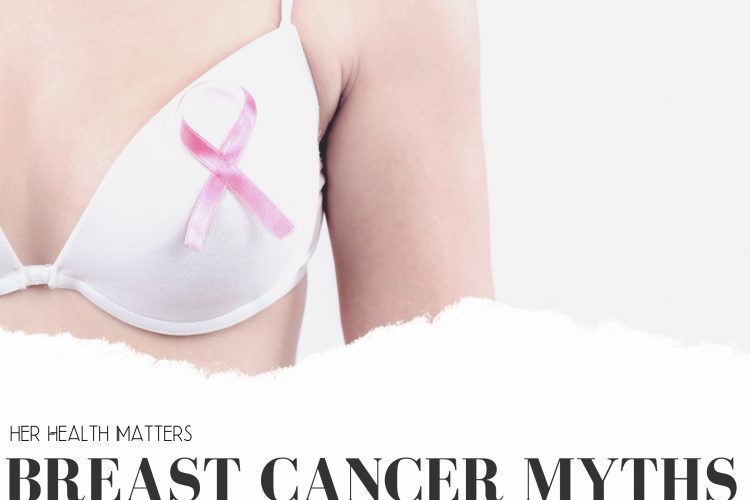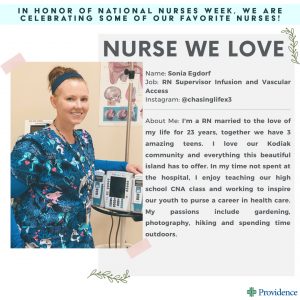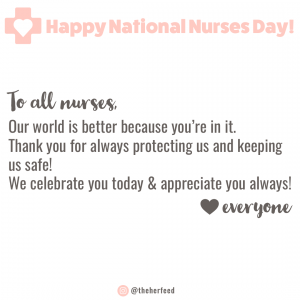Her Health Matters: Breast Cancer Myths
- Health & Wellness
- Nov 22, 2019
We had so many questions from our readers after posting our HerHealthMatters: Breast Cancer piece, we feel like it’s important to keep the conversation about breast cancer going even though it’s not October/Breast Cancer Awareness month anymore. We feel breast health and breast cancer awareness are both incredibly important topics and we are committed to doing our part to help educate our readers about them through our HerHealthMatters series in partnership with Providence St. Joseph Health.
As a reminder, HerHealthMatters is a little bit of a play on words with a double meaning. It represents the importance of a woman’s health and the subject of topics this series covers (women’s health). We couldn’t do this alone (nor would I try) so we’ve partnered with Providence St. Joseph Health to provide us with the information, education and support for this weekly series.

BREAST CANCER MYTH #1
MYTH: If I don’t have a family history of breast cancer, I won’t get it.

FACT: Most people diagnosed with breast cancer have no known family history.
- Many people think of breast cancer as an inherited disease. But only about 5–10% of breast cancers are believed to be hereditary, meaning they’re caused by abnormal changes (or mutations) in certain genes passed from parent to child.1 The vast majority of people who get breast cancer have no family history, suggesting that other factors must be at work, such as environment and lifestyle.

BREAST CANCER MYTH #2
MYTH: If you maintain a healthy weight, exercise regularly, eat healthy, and limit alcohol, you don’t have to worry about breast cancer.

FACT: Although these behaviors can help lower breast cancer risk, they can’t eliminate it.
- It’s something we hear again and again from newly diagnosed women: “I eat healthy, I’m at a healthy weight, I’m active, and I barely drink. So how did I end up with breast cancer?” Yes, there is evidence that all of these behaviors can help lower your risk. However, they can’t guarantee you’ll never get the disease. There are so many examples of people who do everything right and still get breast cancer.

BREAST CANCER MYTH #3
MYTH: Wearing a bra can cause breast cancer.

FACT: There is no evidence that bras cause breast cancer.
- From time to time, media coverage and the internet have fueled myths that wearing a bra can increase breast cancer risk. The theory was that wearing a bra — especially an underwire style — could restrict the flow of lymph fluid out of the breast, causing toxic substances to build up in the tissue. However, there is no evidence to support this claim. A 2014 study of roughly 1,500 women with breast cancer found no link between bra-wearing and breast cancer.

BREAST CANCER MYTH #4
MYTH: All breast cancer is treated pretty much the same way.

FACT: Treatment plans vary widely depending on the characteristics of the cancer and patient preferences.
- If you’ve never had breast cancer or haven’t been close to someone who does, there’s no real reason to learn the ins and outs of treatment. Many people have some vague idea that breast cancer requires some combination of surgery, radiation therapy, and maybe chemotherapy, but they don’t know much beyond that. They might not realize that they can speak to five different people with breast cancer and discover that they have five different treatment plans.
- This is because each person’s treatment plan really is tailored to his or her needs. So many different factors can come into play when choosing treatments, such as:
- the size, stage, and grade of the cancer, as well as the location (ducts vs. lobules)
- whether the cancer is known or believed to be linked to an inherited genetic mutation, such as BRCA1 or BRCA2
- whether the cancer tests positive for estrogen or progesterone receptors (meaning its growth is fueled by hormones)
- whether the cancer tests positive for extra copies of the HER2 gene
- results of tests that can predict the likelihood of recurrence, such as Oncotype DX or MammaPrint
- patient preferences about avoiding specific side effects or the timing of treatment sessions

About Providence St. Joseph Health
At Providence St. Joseph Health, our mission calls us to be agents of radical change for health. We’re to be a source of healing love and a beacon of hope … in the world, within each of the communities. We believe everyone deserves a chance to lead the healthiest life possible. That’s why we’re continuously innovating to create access for all and foster healthier communities. We believe that to make the greatest impact we need to leverage the assets of our organization in partnership with other organizations of goodwill that are directly addressing fundamental needs better served outside of a clinical care setting. Improving the health of our communities is fundamental and a commitment rooted deeply in our heritage and purpose.
Disclaimer: All information, content, and material of this website is for informational purposes only and are not intended to serve as a substitute for the consultation, diagnosis, and/or medical treatment of a qualified physician or healthcare provider.
MEDICAL EMERGENCY
If you have a medical emergency, call your doctor or 911 immediately.



